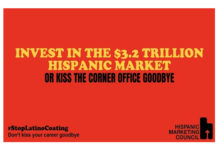Black professionals in tech have to switch jobs more frequently than non-Black peers to seek career growth and progression, according to a new study.
The research carried out by Valence, a platform connecting and empowering Black professionals, and recruiting firm Russell Reynolds Associates found that Black employees in tech express lower levels of trust and loyalty in their employers than their non-Black counterparts, leading to higher churn and fewer opportunities to manage teams and initiatives.
Nearly half (47%) of Black tech professionals strongly agree they must switch between companies frequently to seek career growth; just 28% of non-Black respondents said the same. In fact, on average Black tech talent moves between companies every 3.5 years to advance, compared to 5.1 for their non-Black peers. frequently than their non-Black peers; with younger Black talent moving on more quickly (2 years compared to 4.5 years), confirmed the research.
INVESTING IN EMERGING BLACK LEADERS
Black tech professionals with 10 to 20 years of experience have been promoted about half as often as their non-Black counterparts with the same years of experience, the research revealed. Black professionals earned three promotions on average over 10 to 20 years, while their non-Black peers in tech received more than 5 promotions on average over that span.
“The business case for fighting for diverse representation at the executive level is clear,” stated Tracy Reneé Williams, Vice President of Learning and Development and Head of BONDS. “But the effort starts by investing in emerging Black leaders so that change at the top is possible. When rising Black professionals see their companies and executives invest in their futures, they are more likely to stay at their organisations and take on the leadership roles of tomorrow. BONDS is designed to serve as that catalyst.”

EMPOWERING BLACK PROFESSIONALS
Launched in mid-2021, the BONDS professional development membership programme provides resources for emerging Black executives. It is designed for Black professionals with 5 to 15 years of work experience. Through coaching, community and curriculum, BONDS unlocks their full potential and sets them on the path to realising their goals.
Valence, the leading platform connecting and empowering Black professionals, has also launched the Each One, Reach One movement to increase the representation of Black professionals in US business leadership. Each One, Reach One encourages corporate leaders and employers to foster the next generation of Black professionals to the corporate C-suite by supporting aspiring Black executives with membership in the flagship BONDS programme.
The inaugural BONDS class comprised 150 members employed at leading companies including Accel, Electrolux, Lightspeed, PayPal, Roblox, Silicon Valley Bank, and more. Through Each One, Reach One – which coincides with Black History Month – BONDS will identify the next class of Black professionals to participate in its programme. For every BONDS membership sponsored in February, Silicon Valley Bank will make a matching donation to the National Urban League up to $10,000. Additionally, to celebrate the spirit of Each One, Reach One, Philadelphia-based artist Charles “Chuck Styles” Edwards is creating an original work, and each new BONDS member and sponsor will receive a limited edition NFT version of the piece.
STRUGGLE TO ATTRACT & RETAIN BLACK TALENT
“Emerging Black leaders continue to face enormous challenges navigating career development and advancement, while companies and leadership struggle to attract and retain Black talent in their executive ranks,” said Guy Primus, CEO of Valence, which conceived and manages the BONDS programme. “Each One, Reach One provides a platform for executives, employers and Black business leaders to take meaningful steps to accelerate Black representation in the C-suite and drive positive change in corporate America.”
Each One, Reach One – which also includes ABLE, Black Girls Rock and Pledge LA as partners that feature mentorship and 1:1 support for Black professionals – offers a variety of opportunities to position emerging Black leaders for success and advancement. Through BONDS, members join a community that organises monthly coaching sessions and the opportunity to learn from industry and cultural icons while amplifying business growth. Black professionals can use the programme’s sponsorship toolkit when applying for BONDS to get financial support for their membership.

CREATING CULTURE OF INCLUSION
“BONDS gives us the ability to say to our Black talent, ‘We’re going to invest in you.’ To me, that’s the ultimate form of inclusivity – we want you and will invest in you and your career,” said Stephen Svajian, CEO of Anova, an Electrolux company. “Valence BONDS offers us this opportunity.”
Barry Eggers, Founding Partner at Lightspeed, believes that venture capitalists have a responsibility to contribute to a culture of inclusion. “At the centre of economic innovation and change, venture capital has an univocally important role to play in building a more equitable and representative society,” Eggers said. “As a partner of Valence BONDS, we work hand in hand with our portfolio founders and people leaders to empower and provide access to executive coaching, leadership resources, and mentorship needed to reach the C-suite. We are grateful to partner with organisations like Valence and build the more diverse and inclusive future we believe in.”
Find out more about the Each One Reach One movement here.




































